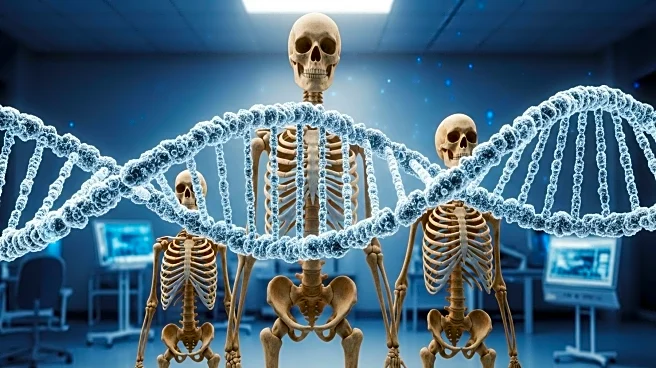What's Happening?
Researchers in Colombia have identified a previously unknown lineage of human beings, dating back approximately 6,000 years, through DNA sequencing of ancient remains. The remains, belonging to a group known as the Checua, were excavated in the Nemocon municipality in 1992 but had not been fully sequenced until now. Andrea Casas, a researcher at the National University's Genetics Institute, noted that the Checua lineage is distinct from other known lineages in the Americas. The group is believed to have been an isolated, nomadic hunter-gatherer community, possibly dying out due to climate conditions, disease, or lack of food.
Why It's Important?
The discovery of a new human lineage provides significant insights into the migration and evolution of ancient human populations in the Americas. It challenges existing theories about human settlement and adaptation in prehistoric times. This finding could lead to a deeper understanding of genetic diversity and the impact of environmental factors on human survival. The research highlights the importance of DNA sequencing in uncovering historical human connections and contributes to the broader field of anthropology and genetics.








